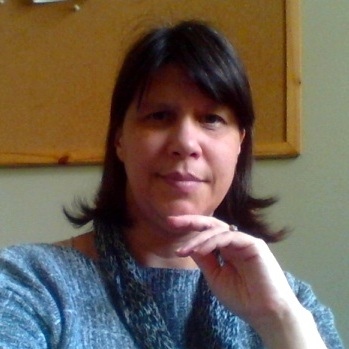
On Working with Groups – Rose Bard
As a mom I can’t help but wonder why my daughter, a brilliant and happy child had to go through so much struggle in school. She was, until I applied some of the principles from Mediated-learning, always labeled as a lazy student. Now that she’s regained her confidence, and has been able to raise her test score especially in Math, she is quite a different student. Before that, she used to describe herself as dumb, because that was how others saw her. And she accepted the label.
Every group, no matter the size, is formed of people, not just students. And everyone is different and a unique being. But above all, all of them can learn and will learn at their own pace. But in order for that to happen, I had taken into consideration in my own practice the fact that I needed to learn to listen to them myself, ask questions instead of assuming things and be ready to be a role model for them of the very thing I wanted them to develop as well as mediate the process of learning.
More and more during the last few years, I am moving away from the view of a teacher whose ideal classroom¹ is a place where teachers teach and students simply learn. I have learned that learning as well as teaching is a continuous and joyful process if the people in the room become more and more aware of what is going on with themselves and others.
Learn to live together
“One of education’s task according to Unesco is both to teach about human diversity and to instill in them an awareness of the similarities and interdependence of all people.” Unesco¹
Every person that steps in our room brings with them their own stories, their own beliefs and their own dreams both about English and life itself. I feel though that for quite a while in my teaching career, although I had always managed to build rapport with most of my students easily, with some of them it took a lot more. And before I became aware myself of the importance of diversity and what really equality meant, I failed many times to build a learning community. With some groups, though, it happened almost immediately or naturally and despite of me — and that used to puzzle me.
My daughter’s struggle at school made me ponder, and although it was suggested quite a few times that she could have some sort of learning disability and that I should had taken her to specialists, most of that was due to the fact that she never felt part of the process. She could not ask questions without being questioned herself.
Living together: How I have been pursuing this goal
Because of my daughter, I became more aware of what I was doing in class myself. And questions started to rise. Questions like:
Was I actually giving my students the space to ask questions?
Were they able to listen to each other and to themselves?
Did they have the opportunity to make sense of the things they were hearing, seeing and reading and think through what I was trying to teach them?
Did they have goals themselves? Were my teaching goals matching theirs?
The questions never seem to have an end. But I am much more confident that working with the whole group without losing the focus on the individual is becoming more and more part of the learning process.

Some of the changes I did with my 9th graders:
- I’m using authentic materials that are easily adapted to work with all levels and create tasks that are doable and connect them to the content of the authentic material as well as making them reflect about themselves and others. In A day in the life of Amar, I created or adapted others’ ideas around the theme of daily routines by inviting students to express their feelings and opinions.
- Use notebooks or digital tools to record their thoughts and share with a bigger audience. In A day in the life of Amar I used Linoit. My learners keep a small notebook to use in class, but whenever possible I added digital tools with the aim to help them connect with other learners.
- I discovered that using notebooks, allowing learners plenty of time to write and offering support by personalizing the learning process was one of my best tools. I work on the board at times, but most of the time I use learners’ notebooks as the board itself and explain to each one individually the language points they need as they need it.
- I have also found it to be useful to talk through error correction with them. I use four ways to indicate that they need to rethink again. Circling the word means there might be a grammar/vocabulary error. Underlining means there is a spelling mistake. An x means a word is missing. Words that are not necessary or placed in the wrong place, they are crossed out. This has been really helpful. I also ask questions instead of assuming I know what they don’t know. If the error is in their level of English, they are able most of the time to self-correct themselves. For lower levels, I welcome peer correction. ~ Rose Bard

¹ If you interested in reading more about baking education in which I am striving as many of us are to become free of, read Paulo Freire here: ¹http://www2.webster.edu/~corbetre/philosophy/education/freire/freire-2.html
For more on how Rose is working with groups please see her recent blog post here on her very own Teaching Journal blog.Connect with Rose and other iTDi Associates, Mentors, and Faculty by joining the iTDi Community. Sign Up For A Free iTDi Account to create your profile and get immediate access to our social forums and trial lessons from our English For Teachers and Teacher Development courses.
Like what we do?
Become an iTDi Patron.
Your support makes a difference.

